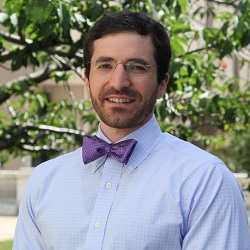RSV, flu increase risk of secondary S. pneumoniae infection, COVID-19 doesn't, study finds
Having tested positive for influenza or respiratory syncytial virus (RSV) in the past 30 days more than doubled the risk of subsequent Streptococcus pneumoniae infection, but COVID-19 was associated with a decreased risk, according to retrospective data from more than 188,000 hospitalized veterans tested for S. pneumoniae.
Patients who have recently had flu or respiratory syncytial virus (RSV) are at elevated risk of secondary Streptococcus pneumoniae infection, but those who have had COVID-19 are not, a study of hospitalized veterans found.
Researchers conducted a retrospective analysis of patients tested for S. pneumoniae in Veterans Affairs (VA) hospitals from January 2015 to March 2025. Of the 188,721 patients (mean age, 70 years; 96% male) tested, a total of 8,165 were positive for S. pneumoniae. The study looked at whether they had tested positive for influenza, RSV, or COVID-19 in the prior 30 days. Findings were published by Clinical Infectious Diseases on May 31.
In the overall cohort, 14,506 patients had been positive for COVID-19, and 2.32% of them subsequently had S. pneumoniae infection. Among the 1,349 patients with RSV and 4,504 with influenza in the prior 30 days, S. pneumoniae rates were 9.79% and 10.03%, respectively. In comparison, the background incidence of S. pneumoniae in patients without any detected viral infection was 4.3%. Influenza or RSV infection was associated with significantly increased risk of S. pneumoniae infection (odds ratios [OR], 2.39 [95% CI, 2.15 to 2.64] and 2.50 [95% CI, 2.07 to 2.99], respectively), but prior COVID-19 infection was associated with a decrease in risk (OR, 0.56 [95% CI, 0.50 to 0.62]). Current smoking and chronic obstructive pulmonary disease were associated with increased risk (ORs, 1.09 [95% CI, 1.03 to 1.16] and 1.36 [95% CI, 1.28 to 1.45], respectively), as were liver disease, cancer, and HIV infection.
Limitations include that the study was carried out in a largely older, male population and researchers were unable to assess viral pathogens beyond influenza, RSV, and COVID-19. They noted that the diagnoses of viral infections were based on polymerase chain reaction testing, which can sometimes detect colonization as opposed to true infection.
“In the post-viral setting of influenza or RSV, empiric antimicrobial therapy with coverage for S. pneumoniae should be considered in patients presenting with clinical features suggestive of bacterial superinfection,” the researchers concluded.



